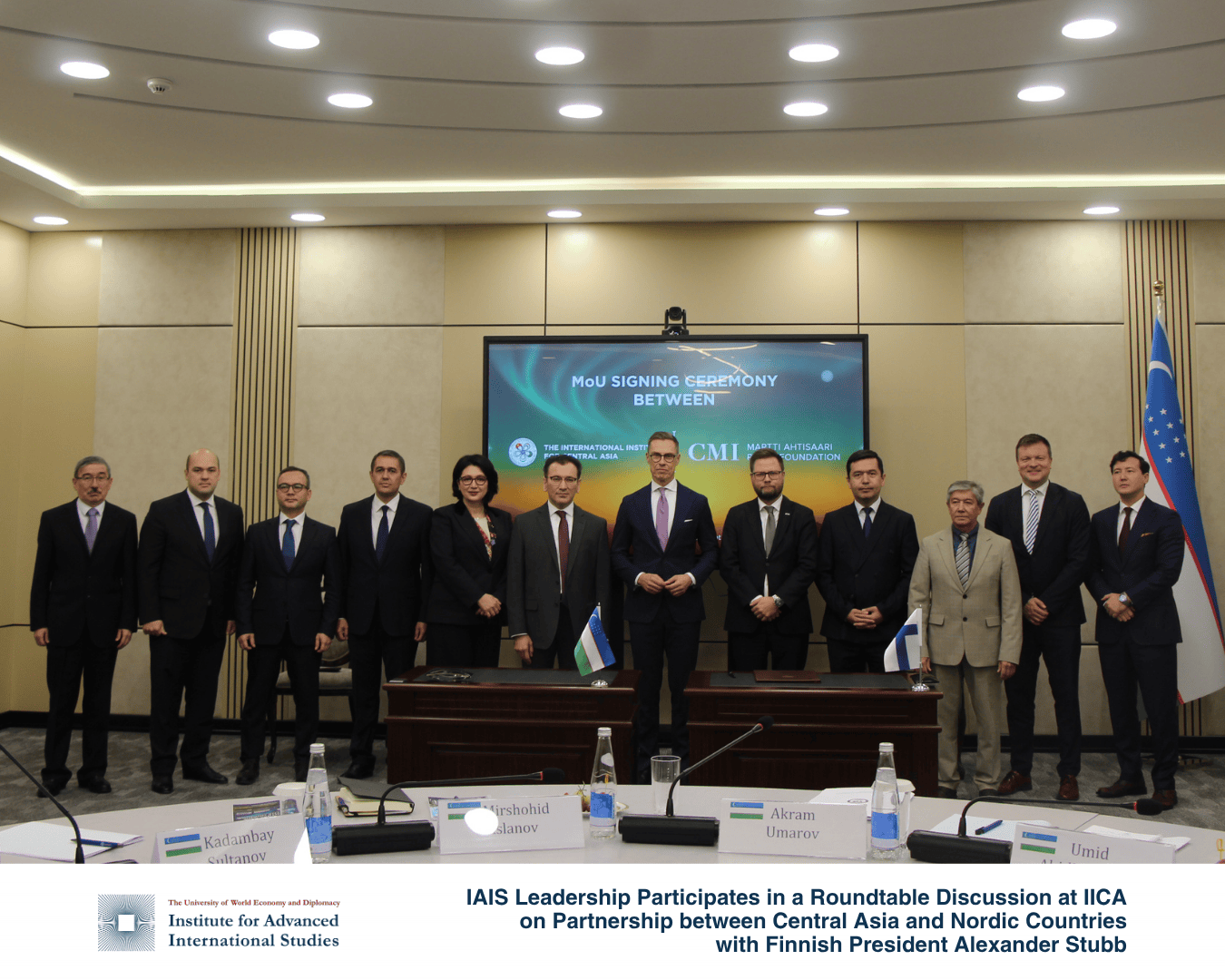
On October 31, the International Institute for Central Asia (IICA) hosted a roundtable discussion on “Central Asia and The Nordics: New Opportunities for Partnership” with the participation of Finnish President Alexander Stubb, organized jointly with the Finnish Ministry of Foreign Affairs. The event was attended by Ville Skinnaari, Member of the Finnish Parliament and Chair of the Parliamentary Friendship Group with Uzbekistan; Oskar Eronen, Program Director of the Martti Ahtisaari Peace Foundation; Director of Peace Mediation at the Office of the President of Finland Ville Brummer, as well as heads of leading research and analytical institutions in Uzbekistan.
In his welcoming speech, IICA Executive Director Javlon Vakhabov highlighted the importance of IICA as a sustainable mechanism for dialogue between Central Asia and The Nordics and emphasized the importance of systematic exchange of experience in the areas of reform, sustainable development, and regional integration. President Alexander Stubb drew attention to the shift of the “center of world gravity” towards the East and the role of Central Asia as an area where the interests of leading powers intersect. He highly appreciated the dynamics of transformation in Uzbekistan and supported the idea of institutionalizing the C5+Nordics format as a platform for exchanging experience and strengthening the sovereignty of the countries in the region.
In his speech, IAIS Director Dr. Akram Umarov emphasized that Central Asia is gradually ceasing to be an isolated internal region and is becoming one of the key hubs of Eurasian connectivity. He noted the growth of regionalism, the expansion of bilateral and trilateral cooperation formats, and the increasing role of structures such as the SCO and the Organization of Turkic States in shaping a new architecture of interaction between Central Asia and external partners.
The roundtable participants discussed the prospects for the development of the C5+Nordics format, the possibilities for applying Northern European experience in the areas of institutional reform, education, the green economy, and digitalization, as well as strengthening interregional trust and coordination in the context of the transformation of the global order.